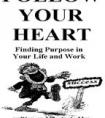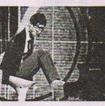A school newspaper The Teens asked over one thousand teenagers how they spent their spare time. Here they report the r小题1:of the survey. It’s not at all sur-八年级英语
题文
| A school newspaper The Teens asked over one thousand teenagers how they spent their spare time. Here they report the r 小题1:of the survey. It’s not at all surprising to learn that most teens said they wanted more free time. Most have less than an hour a day for after-school activities. P 小题2:activity was popular among both girls and boys, averaging between three to six hours a week. Favourite sports among girls were tennis, basketball and swimming. Boys said they liked football, basketball and skating. Speaking of entertainment, music and TV were popular. About half of those surveyed said that music was their favourite activity. This i 小题3:both listening to and playing music. TV was also very popular. Three quarters said they preferred watching TV to reading a book or magazine. Unexpectedly, as many as three out of ten teenagers mentioned that collecting things was something they liked to do in their spare time. They had v 小题4:collections from cartoon books and baseball cards to stickers, toys and coins. V 小题5:friends was also popular. Eight out of ten teenagers said they met friends once a week. Nine out of ten said they contacted friends through the Internet. A 小题6:popular way of contacting friends was the telephone. Everyone we surveyed said they spoke to friends every day. Most said they spoke about twenty minutes a day. Surprisingly, teenagers s 小题7:went dancing, especially girls. Only one out of ten said they went to the dance regularly.  |
答案
小题1:result(s) 小题2:Physical 小题3:included 小题4:various 小题5:Visiting 小题6:Another 小题7:seldom |
试题分析:短文大意:这篇短文是一则关于青少年如何度过空闲时间的一个调查报告。从中我们可以知道他们最喜欢的是体育活动,音乐和电视,收藏和拜访朋友。 小题1:结合语境可知此处指的是这个调查的结果。根据首字母可知填名词result(s),结果。 小题2:联系后一句描述,可知此处指的是身体的活动,根据首字母可知填形容词Physical,身体的,物理的。 小题3:句意:这包括听音乐和演奏音乐。结合语境可知本句描述的是过去的动作,故用一般过去时态。根据首字母可知填过去式动词included,包括。 小题4:联系下文from cartoon books and baseball cards to stickers, toys and coins.可知此处指的是,他们有各种各样的收藏品。根据首字母可知填形容词various,各种各样的。 小题5:联系后一句they met friends once a week.可知此处指的是拜访朋友。动名词作主语表示抽象动作,根据首字母可知填动名词Visiting,拜访。 小题6:联系前两句描述,可知此处指的是另一种联系朋友的方式,根据首字母可知填不定代词Another,多个中的另一个。 小题7:联系后一句描述,可知年轻人很少去跳舞。根据首字母可知填副词seldom,很少,不常。 |
据专家权威分析,试题“A school newspaper The Teens asked over one thousand teenage..”主要考查你对 物主代词,单词、词组 等考点的理解。关于这些考点的“档案”如下:
物主代词单词、词组
考点名称:物主代词
- 物主代词:
表示所有关系的代词叫做物主代词,也叫人称代词的所有格。
物主代词分为形容词性物主代词和名词性物主代词两种。
物主代词有人称和数的变化。第三人称单数的物主代词还有性别的变化。 物主代词的用法:
物主代词既有表示所属的作用又有指代作用,例如:
John had cut his finger; apparently there was a broken glass on his desk.
约翰割破了手指,显而易见,他桌子上有个破碎的玻璃杯。
物主代词有形容词性(my, your等)和名词性(mine, yours等)两种:
形容词性的物主代词属于限定词。
名词性的物主代词在用法上相当于省略了中心名词的 -'s属格结构,例如:
Jack's cap 意为 The cap is Jack's.
His cap 意为 The cap is his.形容词性物主代词用法:
1. 形容词性物主代词相当于形容词,在句中只能用作定语,后面必须跟名词。名词性物主代词常用来避免和前面已提及的名词重复。
相当于【形容词性物主代词+名词】。例如:
Is that yourbike? 那是你的自行车吗?
My pen is quite different from his.
2. 如果名词前用了形容词性物主代词,就不能再用冠词(a, an, the)、指示代词(this, that, these, those)等修饰词了。例如:
这是他的书桌。This is his desk.
3. 与形容词一起修饰名词时,形容词性物主代词要放在形容词的前面。例如:
his English books他的英语书。
their Chinese friends他们的中国朋友。
4. 汉语中经常会出现"我妈妈","你们老师"等这样的语言现象,虽然代词用的是"我"、"你们",但实际意义仍是"我的"、"你们的",
所以在英译时,注意要用形容词性物主代词"my","your"。
例如:你妈妈在家吗?
误:Is you mother at home?
正:Is yourmother at home?
5. it's与its读音相同,he's与his读音相似,但使用时需注意它们的区别(it's和he's分别是it is和he is的缩略形式,但its 和his 却是形容词性物主代词) 。
例如: It's a bird. Its name is Polly. 它是一只鸟。它的名字叫波利。
He's a student. His mother is a teacher. 他是一名学生。他妈妈是一位教师
口诀:
有“名”则"形“,无“名”则“名”。
意思是:后面是名词的话,前面就要用 形容词性物主代词。后面没有名词的话,就用名词性物主代词。名词性物主代词的句法功能:
a. 作主语,例如:
May I use your pen? Yours works better.
我可以用一用你的钢笔吗? 你的比我的好用。
b.作宾语,例如:
I love my motherland as much as you love yours.
我爱我的祖国就像你爱你的祖国一样深。
c.作介词宾语,例如:
You should interpret what I said in my sense of the word, not in yours.
你应当按我所用的词义去解释我说的话,而不能按你自己的意义去解释。
d.作主语补语,例如:
The life I have is yours. It's yours. It's yours. 我的生命属于你,属于你,属于你。
名词性物主代词可以用在介词of的后面,相当于“of+名词所有格”。
口诀
有“名”则"形“,无“名”则“名”。
注:
后面是名词的话,前面就要用 形容词性物主代词。
后面没有名词的话,就用名词性物主代词.形容词性物主代词与名词性物主代词的区别:
一.形容词性物主代词起形容词的作用,用在名词前。
例:
1. This is my book.这是我的书。
2. We love our motherland.我们热爱我们的祖国。
二.名词性物主代词起名词的作用。
例:
1. Look at the two pencils. The red one is yours and the blue one is mine.
看那两支铅笔,红的是你的,蓝的是我的。
2. He likes my pen. He doesn't like hers.
他喜欢我的钢笔。不喜欢她的。
- 最新内容
- 相关内容
- 网友推荐
- 图文推荐
| [家长教育] 孩子为什么会和父母感情疏离? (2019-07-14) |
| [教师分享] 给远方姐姐的一封信 (2018-11-07) |
| [教师分享] 伸缩门 (2018-11-07) |
| [教师分享] 回家乡 (2018-11-07) |
| [教师分享] 是风味也是人间 (2018-11-07) |
| [教师分享] 一句格言的启示 (2018-11-07) |
| [教师分享] 无规矩不成方圆 (2018-11-07) |
| [教师分享] 第十届全国教育名家论坛有感(二) (2018-11-07) |
| [教师分享] 贪玩的小狗 (2018-11-07) |
| [教师分享] 未命名文章 (2018-11-07) |


![—______ is Jenny.—I’m Gina. Nice to meet you.[ ]A. I’mB. His nameC. I’mD. My name-七年级英语](http://www.00-edu.com/d/file/ks/4/2/wuzhudaici/2019-11-29/small48b153aa794daeb090c5d2505d5cbbac1575042450.png)



